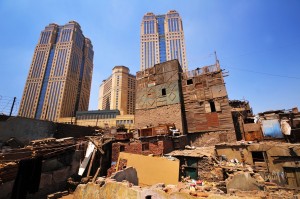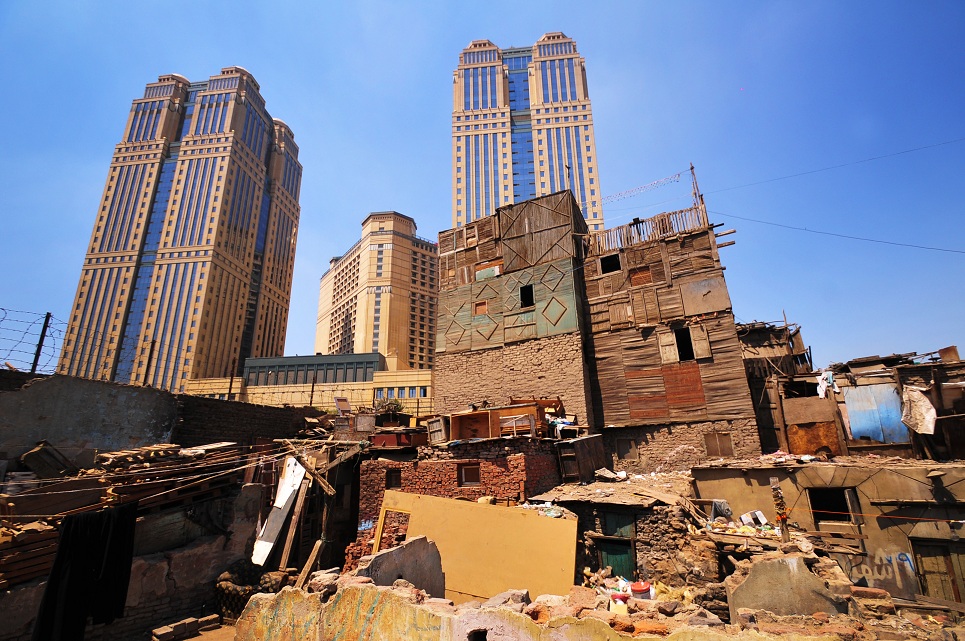
An administrative court postponed on Tuesday a case filed by residents of Ramlet Boulaq against the Cairo governorate until 18 December. The governor had issued a land seizure order on their land last year.
The trial was postponed after the lawyers representing the residents requested a court order allowing them to obtain government documents on a deal between the Cairo governorate and the Slum Areas Renovation Fund. The court granted the request.
The residents’ lawyers demanded the government lawyers present these documents in the last session in October but the government lawyers failed to do so in the Tuesday session.
“These documents do not exist and we know they do not, that is why the government lawyers were unable to present them today. If we can’t find them then the court is obliged to get them its way or rule that they don’t exist,” said lawyer Malek Adly.
Adly, a lawyer with the Egyptian Centre for Economic and Social Rights who represents Ramlet Boulaq residents, added that if the documents are in fact prove non-existent then the governor of Cairo’s land seizure order automatically becomes null and void.
“A land seizure decision is temporary and is usually taken when the government plans to renovate, restore or generally improve an area. In this case the Cairo governorate plans to do none of these things, it just plans on removing the houses there, which means the governor should have issued an eviction order not a seizure order,” he said.
An eviction order requires the government to pay the evicted citizens fair compensation since they have to be removed from their homes. A land seizure order does not require the government to pay such compensation since the area is supposedly being improved for its residents.
“This is all just the government trying to do [communications tycoon and billionaire] Naguib Sawiris a favour,” said Adly.
Sawiris is part owner of the upmarket Nile City Towers next to Ramlet Boulaq’s Kafrawy Shacks. The Nile City management has been trying to acquire the land for a long time now but most residents refuse to sell at what they say is an unfair price.
They say that the governor’s decision is a ploy so that the government could bulldoze the shacks, which have been their homes for decades. After the government gives them back the land with their homes removed the residents would be under even greater pressure to sell.
The case proceedings do not freeze the seizure order, which means that legally the Cairo governorate is allowed to take over the land until the court repeals the order, but Adly does not believe the governorate will implement the order any time soon.

